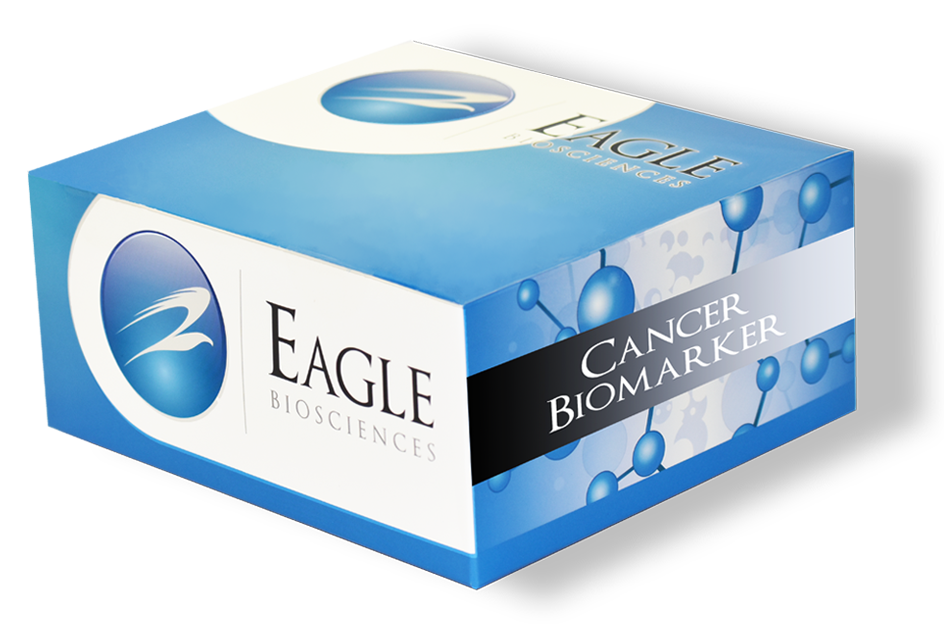Mouse GM-CSF ELISA Assay
The Mouse GM-CSF ELISA Assay is For Research Use Only
Size: 1×96 wells
Sensitivity: 7 pg/mL
Dynamic Range: 31.25 – 1000 pg/ml
Incubation Time: 3.5 hours
Sample Type: Serum, Plasma, Cell Culture
Sample Size: 100 µl
Alternative Names: Mouse Granulocyte macrophage colony-stimulating factor
Assay Principle
The Eagle Biosciences Mouse Granulocyte macrophage colony-stimulating factor (GM-CSF) ELISA Assay Kit employs the quantitative sandwich enzyme immunoassay technique. A monoclonal antibody specific for GM-CSF has been pre-coated onto a microplate. Standards and samples are pipetted into the wells and any GM-CSF present is bound by the immobilized antibody. Following incubation unbound samples are removed during a wash step, and then a detection antibody specific for GM-CSF is added to the wells and binds to the combination of capture antibody-GM-CSF in sample. Following a wash to remove any unbound combination, and enzyme conjugate is added to the wells. Following incubation and wash steps a substrate is added. A colored product is formed in proportion to the amount of GM-CSF present in the sample. The reaction is terminated by addition of acid and absorbance is measured at 450nm. A standard curve is prepared from seven GM-CSF standard dilutions and GM-CSF sample concentration determined.
Related Products
Mouse VEGF ELISA Assay
Human GM-CSF ELISA Assay
Mouse Interferon Gamma ELISA Assay


